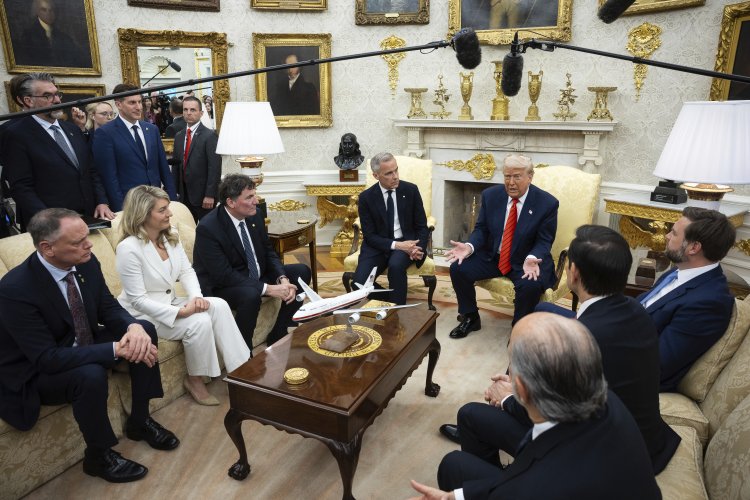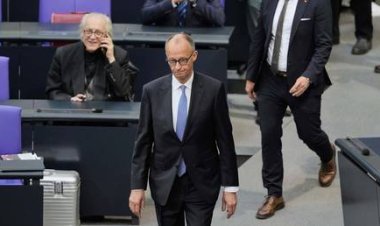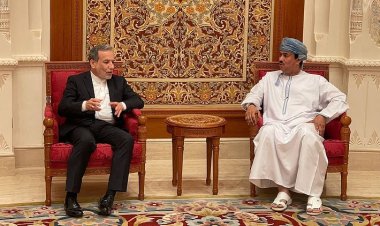Carney declares Canada "not for sale" as Trump promotes tax incentives
The president adopted a more amicable demeanor during the meeting; however, he remained steadfast on the issue of tariffs.

While Trump acknowledged that “it takes two to tango,” he continued to promote the idea of Canada potentially joining the U.S. as a 51st state, emphasizing benefits such as possible tax cuts for Canadian citizens and repeating the phrase “never say never.”
This meeting marked the first significant interaction between Carney, recently elected as Prime Minister, and Trump, who previously had a contentious relationship with Canada that bolstered Carney's political standing. The session was characterized by gestures of goodwill and promises from both parties to improve trade relations, yet the specifics of any potential agreements remained unclear, including the ongoing issues surrounding Trump’s tariffs.
“We’re going to be friends with Canada,” Trump stated while seated next to Carney after an amiable opening exchange, starkly contrasting the earlier tensions between the leaders.
As questions from the press turned toward tariffs, Trump insisted that his remarks were intended to be “very friendly,” noting that this meeting wouldn’t escalate like his previous contentious discussion with Ukrainian President Volodymyr Zelenskyy. However, when asked if Carney could persuade him to lift tariffs on Canadian autos, steel, and aluminum, Trump replied simply, “No.”
At the beginning of the meeting, Trump attempted to lighten the mood by joking that Carney’s recent election victory was partly due to a wave of anti-American sentiment, claiming, “I think I was probably the greatest thing to happen to him, but I can’t take full credit.” He described Carney as “a very talented person, a very good person,” pointing out their shared experiences and acknowledging some challenging issues to address.
In his initial comments, Carney adopted the approach often taken by visiting heads of state, showering Trump with compliments. He referred to Trump as a “transformational president” and noted that he, too, was elected “to transform Canada.” However, Carney emphasized that despite asserting during the election that the close U.S.-Canada partnership had ended, he was in Washington to extend an olive branch.
Carney remarked, “The history of Canada and the U.S. is: We’re stronger when we work together and there’s many opportunities to work together and I look forward to addressing those issues that we have, but also to finding those areas of mutual cooperation.” Trump replied approvingly, “Very nice statement.”
Addressing reporters, Trump recognized that his strained relationship with Carney’s predecessor, Justin Trudeau, had affected U.S.-Canada relations, and he commended Canada for increasing investments in security and defense. Despite Carney's show of warmth, he took a firm stance on trade, indicating that Trump’s current tariffs on Canada were “taking advantage” of the U.S.-Mexico-Canada Agreement negotiated during Trump’s first term.
Carney expressed interest in a “broader negotiation,” asserting that USMCA would have to be revised. In response to a question about potential changes, Trump stated that initial discussions would primarily focus on “concepts.”
As the press continued to probe the trade issues, the differences between the two leaders on this subject became increasingly apparent. Carney emphasized that Canada is the “largest client of the U.S.” and pointed out the interconnectedness of the auto manufacturing industries in both countries.
“This is a bigger discussion and this will take some time and some discussions,” Carney said. “That’s why we’re here.”
Trump, reiterating a “friendly” tone, clarified that his tariff policies aim to shift more manufacturing to the U.S. and away from Canada. “We want to make our own cars. We don’t really want cars from Canada,” he said. “And we don’t want steel from Canada, because we make our own steel.”
While both leaders attempted to maintain a cordial atmosphere, other Canadian politicians voiced sharper criticisms of Trump’s stance toward their nation. Ottawa Premier Doug Ford commented, “Even the Trump supporters are saying, ’This is crazy what he’s doing,’” referring to Trump’s declining approval ratings. He questioned Trump’s claim that the U.S. doesn’t “need” Canada, saying, “Really?” Ford stressed the importance of Canada’s resources, including high-grade nickel and uranium, to the U.S. economy and energy sector, highlighting the significance of cross-border electricity supply.
Sue Allan contributed to this report.
Camille Lefevre for TROIB News
Find more stories on Business, Economy and Finance in TROIB business












